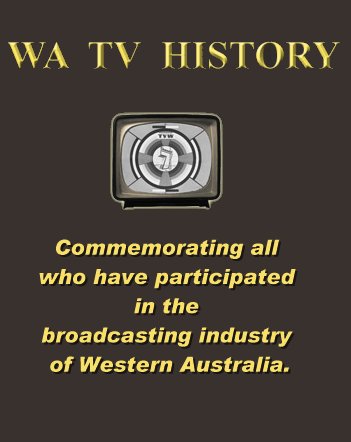
This is an examination of current issues facing the ABC. Fulfilling the ABC charter, program cuts, outsourcing, centralisation, technological change and job losses. As to be expected, there are a number of points of view, which this article will endeavour to report accurately in a fair and balanced manner. They are very contentious issues, which have been evolving over many years as broadcasting facilities, techniques and management styles change, from the previous bureaucratic, slow moving public service structure to one more aware of modern business philosophies, and capable of great innovation. The earlier days were more labour intensive when Perth was an isolated outpost, separated from the rest of the country by not only distance and poor roads, but also primitive communications.
The history of change gave witness to a variety of predicaments as our ancestors approached the industrial age. Change manifests itself in different forms over time, and even though the circumstances vary, there is still an impact as people try to cope with a new age.
As our ancestors went from the horse and cart to the steam age and electricity. The older readers will remember trams, trolley buses, gramophone records, early radio serials and black and white TV. Many trades that existed in our grandparents era, no longer exist now.

We’ve gone from typewriters to punch cards to computers, from pulse to tone dial to mobile to smart-phones. Products come and go as do the methods of production. When television began in 1956 in the east and 1959 here, there were no outside TV program production facilities of great note, as all Australian programming was produced in-house by the respective stations, other than film makers producing commercials. Gradually companies such as Crawford and Grundy appeared on the scene, making the transition from radio to TV production.
Everything has been transformed since then, and the transition is ongoing.
More recently, production houses have changed ownership with overseas companies playing a role, such as Endemol Southern Star producing world wide formats for Australia. Other companies include FremantleMedia, Beyond International Limited, Working Dog, Roving Enterprises, activeTV, Screentime Pty Ltd, The Wiggles, WTFN Entertainment and many more, who mainly service the commercial stations.
Interestingly, some of the people involved in these production houses were spawned by the ABC.
When the ABC axed “Towards 2000″ it became “Beyond 2000″ and moved to the Seven Network, then later the TEN Network. The faces who were familiar on the ABC then became household names on the commercials. The production company Beyond was formed in 1985 to produce the science and technology series. Carmel Travers was a journalist with the ABC, and foreign correspondent based in East Africa, before appearing in Perth based current affairs, and becoming a presenter on “Towards 2000″. After the axing, Carmel produced and presented “Beyond 2000″, which screened to audiences in more than a hundred countries around the world.
Since then, she has produced hundreds of hours of television and documentaries, most of which have been internationally broadcast. She is the recipient of numerous awards for her work.
In recent years Carmel has become known as a successful businesswoman, having initiated and developed into successful enterprises two major Australian production companies – Beyond International and Energee Entertainment.
Production house involvement has now become a part of the ABC, as the following sample of shows will indicate:
Enough Rope with Andrew Denton (Crackerjack Productions & Zapruder’s Other Films)
- Crackerjack Productions has also been involved with “Australia’s Got Talent”, “The Biggest Loser”, “CNNNN: Chaser Non-Stop News Network” and many more.
- Zapruder’s Other Films has also been involved with “Can of Worms”, “The Gruen Transfer”, “The TV Week Logie Awards”, “Hungry Beast” and many more.
Paper Giants (Screen NSW & Southern Star)
- Southern Star has also been involved with “Rescue Special Ops”, “Bed of Roses”, “Rush”, “All Saints”, “City Homicide”, “Blue Heelers”, “Love My Way”, “Home and Away”, “Water Rats” and many more.
Rake (Essential Media and Entertainment)
- Essential has produced projects covering a range of genres for the world’s premier broadcasters, including BBC, National Geographic, PBS, Discovery Channels, Sundance Channel, ABC, SBS, History Channel, CBC and Arte.
Laid (Porchlight Films)
- Porchlight Films has produced “Animal Kingdom”, “Prime Mover”, “Little Fish” and many more.
Angry Boys (co-production between the Australian Broadcasting Corporation and US cable channel HBO)
Crownies (Screentime)
- Screentime has also produced “Underbelly”, “The Informant”, “Jessica”, “Popstars” and many more.
What is unique with ABC productions is becoming harder to define as the same production houses often produce shows for the commercial channels too.
The issues of maintaining a healthy in-house ABC production role not only concerns the affected staff but has become of interest to the parliamentarians, where a Senate Hearing is being conducted with a submission deadline of September 9th.
Now is an opportunity to tell the hearing what you think.
An urgent response is needed if members of the public and ABC staff wish to have input.
For further information, contact:
Committee Secretary
Senate Standing Committees on Environment and Communications
PO Box 6100
Parliament House
Canberra ACT 2600
AustraliaPhone: +61 2 6277 3526
Fax: +61 2 6277 5818
Email: ec.sen@aph.gov.au
More details are provided below.
Here is some background to this matter:
The ABC has dropped a number of programs, of which some were part of a regional funding initiative back in 2004, where for a period of years funds were diverted from the Sydney and Melbourne production units, which financed the making of shows such as George Negus Tonight, before the money was distributed among the other states.
In late October 2004, the ABC issued a media release, titled “Good news for regional Australia”. The ABC has announced that new programming will be created in West Australia, South Australia, Queensland and Tasmania. Gardening Australia was then moved from Tasmania, to replace production work lost in Melbourne as the result of George Negus Tonight finishing in November 2004. Negus then went on to join Dateline on SBS, before moving to TEN.
By 2008, things were looking rosy as ABC TV reported that 2008 had been its most successful ratings year ever.
A long list of ABC TV’s home-made favourite programs achieved their highest audience ever that year, including Media Watch, Gardening Australia, Collectors, Can We Help and At The Movies.
One of the best growth areas had been the Monday to Friday 6.30pm slot – with an average growth in audience of 52% in this timeslot since 2005. The Cook and the Chef, had the biggest growth with an 81% increase in audience since 2005.
Kim Dalton, the ABC’s Director of Television said that, “…our audience has clearly demonstrated their love of Australian programming, with 7 of the top 10 programs on ABC1 being locally made.” Shows that included, Enough Rope with Andrew Denton, Spicks and Specks, ABC News, Australian Story, and The Gruen Transfer.
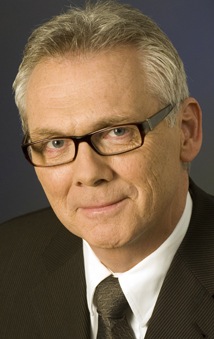
Mr Dalton has been with the corporation for five years, having joined in January 2006. He was previously Chief Executive of the Australian Film Commission. Other roles included Manager of Acquisitions and Development for Beyond International Limited, General Manager of the Australian Children’s Television Foundation, Investment Manager for the Australian Film Finance Corporation and principal of his own production company, Warner Dalton Pty Ltd. In June 2007, he was awarded an OAM for service to the film and television industry.
It has also been under Mr Dalton’s watch, that many shows produced in-house have been cancelled, including Talking Heads, Can We Help?, The Einstein Factor, Sunday Arts, The Cook and the Chef and for a while, Spicks and Specks.
Staff sources said that other in-house shows such as New Inventors had suffered from an under-resourcing that had seen its quality diminish. Others say that, “the issue is not that programs are dumped (because some of them were mediocre) but rather that nothing will replace them”, which relates to under-utilised state built ABC facilities.
Mr Dalton has a stated strategy of outsourcing ABC TV to the private sector, and outlined his preference in a speech to the independent sector in 2005. He maintains outsourcing is a cheaper option and enables him to stretch the ABC budget further.
On August 2nd, 2011, ABC executives handed redundancy notices to dozens of staff across the country as it axed arts programming in Melbourne and production units in Adelaide and Perth.

Production has been cancelled on the Melbourne-based Art Nation and on all the internally-produced arts documentaries which air under the Artscape banner. The Sunday arts block used to go all afternoon, and in recent years it has grown shorter in time, to now have the key arts program removed. Mr Dalton explained that the audience for Art Nation had fallen by “about 30-odd per cent over the past few years”, he said, and the remaining audience was not enough to justify keeping it.
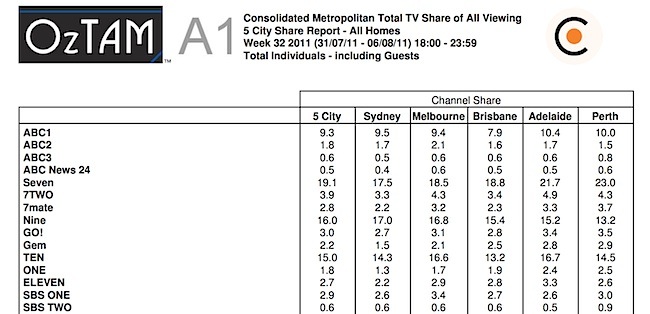
The old perception was that the ABC does not have to concern itself with ratings, in the belief that it exists to provide diversity, education, and quality programs for a range of viewers, as stipulated in the ABC Charter, for even minorities such as those who enjoy the arts, and do not care for sport, yet want to follow trends and developments across all aspects of the arts and culture.
However, Mr Dalton said the ABC remained committed to arts programming on Sunday afternoons, but it will be mostly overseas programming because it’s much cheaper to buy. Meanwhile critics say that overseas arts programs are not a substitute for the local product, “We already know more about international artists than we do about the very talented artists in our own backyard. “Others consider that, “…the magazine arts shows for the last fifteen years, and possibly longer, have been boring to the point of having a brain aneurism.” Isn’t that then an argument to lift the game for the benefit of the arts viewing public, rather than abandon them?
It is understood 15 staff from Art Nation, presented by Fenella Kernebone, will be made redundant in Melbourne, as well as 13 in Adelaide and Perth.
The Artscape program will be outsourced.

The Sydney-based New Inventors ceased to exist after its grand final was broadcast on August 17, the Tasmanian-based Collectors will be “rested” – its staff will be redeployed on a new show, Auctions – and staff will be cut from the production pool in South Australia and West Australia as a result of two new series in each state being commissioned from outside production houses.

There will also be redundancies in the Northern Territory.
The Perth-based Can We Help? was a factual Australian television series hosted by Peter Rowsthorn. It was in its sixth season in 2011, being broadcast on ABC1 at 6.00pm on Saturdays. The farewell episode was aired on Saturday June 25, 2011. The program was driven by viewer questions and requests for help in regards to a wide range of subjects and specialised in reuniting families and loved ones and granting simple wishes to those in need. Over the years it introduced other segments which had a strong sense of history.

Another state based show was lost in late 2010, when the ABC decided against commissioning a further series of Talking Heads, after six series totalling 238 half hour episodes, with 3 years based in Brisbane and 3 in Adelaide. Talking Heads was a show that brought the stories of notable Australians to ABC viewers.
These were the shows that first began as part of the initiative in regional funding, a policy which seems to now be experiencing a 180 degrees about face.
ABC Director of Television Kim Dalton issued a statement saying…
“Television is not a static business. Planning is ongoing around programming, the production slate and the management of resources. Programs may be cancelled such as Talking Heads or Can We Help?. Key talent may decide not to proceed with ongoing series such as Maggie Beer and The Cook And The Chef or Adam Hills and Spicks and Specks,” he said
Mr Dalton sent a memo to staff confirming the circulating rumours. He Cited “falling audiences”, “increasing financial pressures on ABC TV” and a “strategic commitment to focus its limited financial resources on prime-time programming.”
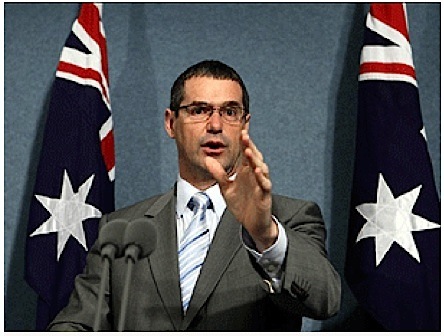
Meanwhile, Communications Minister Senator Conroy has challenged the claim of financial pressure, saying he was “surprised” by Mr Dalton’s statement. He now wants answers from ABC managing director Mark Scott over the national broadcaster’s decision to axe television programs The New Inventors and Art Nation.
“I would say they haven’t had any cuts in funds; these are programs that have been going a long time,” he told ABC News Breakfast.
“I will be seeking information from Mark Scott and the management of the ABC around their statements that financial issues led to the closing of these programs.”
“They had a three-year funding package put in place. It’s coming up for a new round of funding into next year but as far as I’m aware there’s been absolutely no cuts in funding at all from the government to the ABC.”
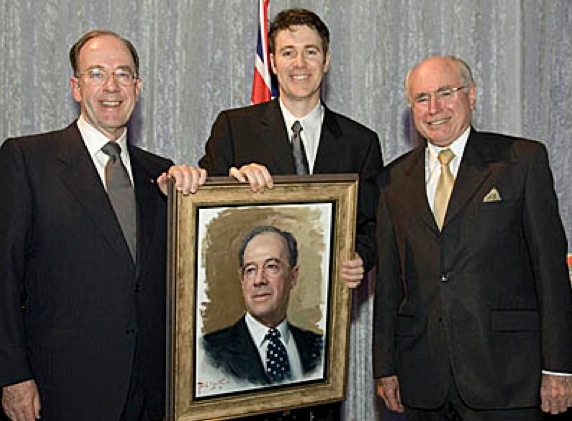
Mr Donald McDonald, chairman from 1996 to 2006, chides ABC management for citing funding problems to justify the cuts to staff and programs after launching television channel News 24.
“The claim that ABC 24 could be established and operated with existing funding was not entirely credible and the case for having a 24-hour news channel has never been made convincingly,” he says.
“News is probably bleeding all other programming.”
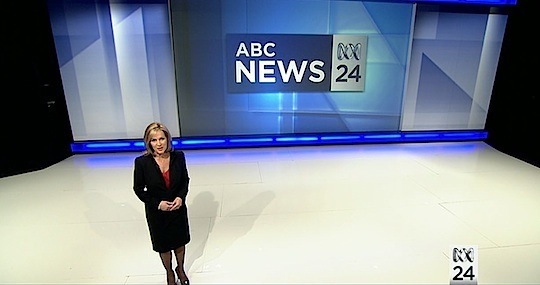
ABC managing director Mark Scott has addressed staff on his recent cuts to programs and jobs, telling them he understands their disappointment.
“In television, we have announced the end of New Inventors and Art Nation for the 2012 calendar year, made some adjustments to sports programming and are looking at other elements of the schedule as part of our commitment to deliver, later in the year, a television production strategy for the next three to five years,” Mr Scott said.
“There are a number of reasons why the ABC does co-productions. In particular, it allows us to deliver more programming by making a smaller financial contribution to the shows we air than if we funded 100 per cent of the budgets,” he said. “Importantly, in commissioning co-productions, we exercise strong editorial oversight to ensure these productions meet our Charter and conform to ABC editorial standards.”
Mr Scott said many of the corporation’s most popular and distinctive programs on television were co-productions including The Gruen Transfer and Adam Hills In Gordon Street Tonight, Paper Giants, Rake, Angry Boys and Laid.
Although the ABC insists it is committed to a mixed-production model, the only shows not to be outsourced are: news and current affairs, religion (Compass), science (Catalyst), indigenous (Message Stick), education (Behind The News), pre-school (Play School), literature (First Tuesday Book Club), food (Poh’s Kitchen), film (Margaret and David) and Gardening Australia.
The Union speaks out
The ABC union has warned that the national broadcaster’s decision to cut programs including Art Nation and the New Inventors, sack staff and further outsource production, is a breach of its Charter and may jeopardise its ongoing funding.
The union is calling for an immediate audit of all TV production costings, both outsourced and in-house, to ensure taxpayers are getting value for money. Graeme Thomson, ABC Section Secretary of the Community and Public Sector Union said: “Taxpayer have the right to be outraged by the dismantling of their ABC.
“This announcement raises serious questions about whether the ABC is delivering against its legislative Charter, Parliament’s justification for the ABC’s one billion budget.
“ABC staff have been gutted by this decision. They are personally committed to delivering the quality content that has made the ABC one of Australia’s most important and respected cultural institutions.
“The cutting of Art Nation, the ABC’s only remaining TV arts program, is an act of cultural vandalism. “The ABC is at its best when it broadcasts the best international and domestically produced material available. This has meant maintaining a balance between in-house and private sector production. “Under Head of Television Kim Dalton ideologically driven approach, this balance has been lost. The ABC TV has been reduced to a mere transmission tower broadcasting the same material from the same production houses used by commercial channels. This threatens the ABC’s distinctiveness, rationale and ultimately, its funding.
“The national broadcaster is required to provide quality programs that reflect the diversity of Australia, its cultures and regional perspectives. The announcement that regional TV producers are to be sacked destroys this important arm of the ABC Charter. The union has also criticised Managing Director Mark Scott, claiming he has overseen the destruction of the ABC’s television production.
“Mr Scott claims he supports a ‘mixed model’ of internal and external production. But on his watch we have seen more outsourcing than under Jonathan Shier,” Mr Thomson said.
“What angers ABC staff is that they have been set up for failure. The internal programs have been starved of funds and promotion budgets, while external productions have had funds lavished on them and have been heavily marketed by the ABC.
“ABC program-makers, eager to rebuild in-house production have been repeatedly told by Mr Dalton to leave the ABC and pitch the program ideas from outside because he is not interested in producing them inside. Australian taxpayers are entitled to be angered at this arrogance and waste,” Mr Thomson said.
Perth staff are concerned over a continued scaling back of television program production in WA. ‘Rollercoaster’ was de-commissioned in 2009, ‘The Hopman Cup’ in 2010 and ‘Can We Help?’ as of June this year. The number of operational TV staff are likely to decrease further this year and next year. If WAFL is cancelled – which is expected – even more TV staff will be gone. There’ll be a few folk left to crew News and that’ll be it. The branch is very depleted. A recent sentiment expressed by those who built the new facilities in WA is that, “…the cost and blood sweat and tears that went in to the provision of studio 61 will be completely wasted by its lack of use.”
A Senate committee will undertake an inquiry into the ABC’s recently announced decision to scale down internally-produced programming and lay off employees.
The probe will examine several issues raised by the broadcaster’s cuts, including the impact on the ABC’s in-house production capabilities – with particular reference to Brisbane, Adelaide, Perth and Hobart – and the broader implications for the quality and diversity of Australian film and television production.
Other issues to be explored by the environment and communications references committee include the ABC’s previous decision to replace the internally-produced Bananas in Pyjamas with an externally-produced animated series.
The inquiry was proposed by the independent senator Nick Xenophon and approved by the chamber on Wednesday August 17, 2011.
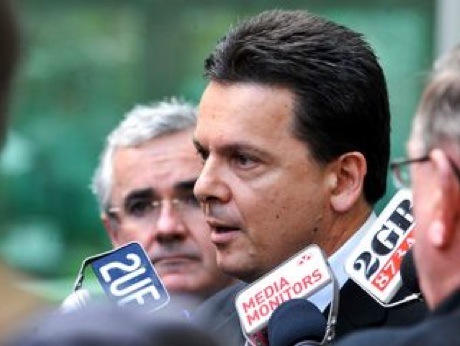
Senator Xenophon wants the committee to examine “the decision by the television management of the ABC to significantly cut the number and amount of ABC-produced programs, jobs (including through forced redundancies) and potentially affect resources, as announced on August 2, 2011.”
The environment and communications committee is due to report on its findings by October 12 this year.
Inquiry into recent ABC programming decisions
Terms of Reference
That the following matter be referred to the Environment and Communications References Committee for inquiry and report by 12 October 2011:
The decision by the television management of the Australian Broadcasting Corporation (ABC) to significantly cut the number and amount of ABC-produced programs, jobs (including through forced redundancies) and potentially affect resources, as announced on August 2, 2011, with particular reference to:
- the implications of this decision on the ABC’s ability to create, produce and own its television content, particularly in the capital cities of Brisbane, Adelaide, Perth and Hobart;
- the implications of this decision on Australian film and television production in general and potential impact on quality and diversity of programs; whether a reduction in ABC-produced programs is contrary to the aims of the National Regional Program Initiative;
- the implications of these cuts on content ownership and intellectual property;
- the impact of the ABC’s decision to end internal production of Bananas in Pyjamas and to outsource the making of a ‘Bananas in Pyjamas’ animation series to Southern Star Endemol Proprietary Limited; and
- the future potential implications of these cuts on ABC television’s capacity to broadcast state league football and rugby;
- and any other related matters.
Submission deadline is September 9th, 2011.
For further information, contact:
Committee Secretary
Senate Standing Committees on Environment and Communications
PO Box 6100
Parliament House
Canberra ACT 2600
AustraliaPhone: +61 2 6277 3526
Fax: +61 2 6277 5818
Email: ec.sen@aph.gov.au
The national broadcaster, in spirit and at law, is meant to be independent of government. Its charter, contained in the Australian Broadcasting Corporation Act 1983, outlines in broad terms the functions of the ABC.
ABC Charter – Section 6 of the ABC Act – Functions of the Corporation
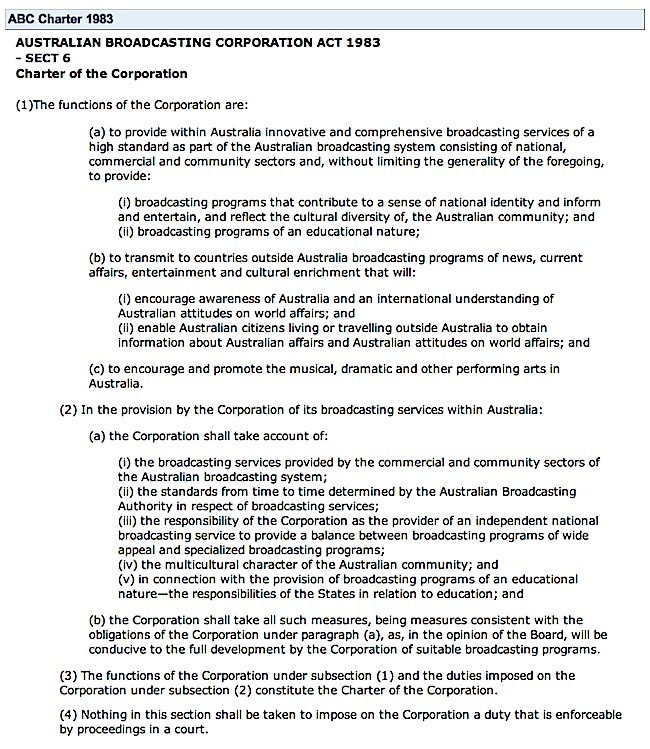
Though the charter makes reference to broadcasting programs that contribute to a sense of national identity and that inform, entertain and educate, whilst reflecting the cultural diversity of our community, its only a notion that cannot be enforced as, “Nothing in this section shall be taken to impose on the Corporation a duty that is enforceable by proceedings in a court.”
The charter makes reference to transmitting programs and less about making them, though under the Powers and duties of the Corporation, the ABC has the right to produce and present programs and provide facilities and engage persons to perform services for this purpose, or deal with a bona fide producer, whom one assumes is external to the ABC.
Special attention is given to News independent services, where an adequate number of persons, both within and outside Australia be engaged to gather news and information.
The word ‘may’ is used rather than ‘must’ when it comes to the provision of broadcasting facilities and staff for the purpose of providing a broadcasting service. This implies that this part of the operation may be outsourced, as in the case of the MediaHub, which is a joint venture between the ABC and the commercial broadcaster WIN.
The rapid transition to digital computer based technology in the delivery of programs, rather than the traditional forms of film, videotape and analogue equipment, has created a shift in the type of skills now needed in the industry. In addition, the life cycle of equipment is shortening at an ever increasing rate. Thus making people who have not retrained as obsolete as the legacy equipment that has been phased out.
A former ABC staff member considered that,
“Staff who couldn’t or preferred not to get across the change to digital technology left years ago. Remaining staff, and newer mostly younger staff, have all received training in new technologies as they’ve been introduced.”
Though with ABC TV presentation now centralised in a south western suburb of Sydney, where MediaHub is located, there have been redundancies in this area. Another issue is still in a state of flux regarding technical services staff where a central hotline contact is envisaged, which too can impact on staff in the field, with further expected redundancies.
In the case of ABC program makers, many will be replaced by outsiders regardless of the ABC staff member’s skills or worth, unless they become outsiders too.






